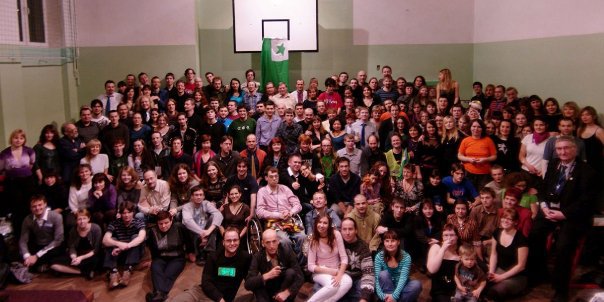Language/Esperanto
Hi Polyglots! 😃
Welcome to the Esperanto learning page!
Esperanto is a language. But a somewhat special one. It came into being at the end of the 19th century, in order to facilitate communication between people with different languages. And, as it was created for this purpose, it is very easy to learn.
In fact, Esperanto is the easiest to learn of all living languages: not a single exception, no irregular verbs, and you can still express yourself on any topic! Since its structure is so logical, you can learn Esperanto in a very short time and be able to use phrases in the language right away. Not only that, but it has been shown that learning Esperanto actually helps with the learning of other foreign languages.
And since this language belongs to no particular country, and almost everybody who speaks it has learned it as a second language, new speakers needn’t fear feeling ignorant or being regarded as inferior. On the contrary, newcomers are welcomed. Source: http://esperanto.bretonio.free.fr/dokumentoj/pakeo-en3.pdf
You will find below many free resources to learn and practice this language.
Enjoy your learning journey with Polyglot Club! 😊
Facts about Esperanto[edit | edit source]
- Language code (ISO 639-3):
epo - Autonyms (how to write "Esperanto" in Esperanto):
Esperanto - Other names for "Esperanto":
Lingvo Internacia - The Esperanto language is spoken in:
Poland
Esperanto is the world's most widely spoken constructed international auxiliary language. Created by Polish ophthalmologist L. L. Zamenhof in 1887, it was intended to be a universal second language for international communication. Zamenhof first described the language in Dr. Esperanto's International Language, which he published in five languages under the pseudonym "Doktoro Esperanto". He claimed that the grammar of the language could be learned in one hour, though this estimate assumed a learner with a background in European languages. The word esperanto translates into English as "one who hopes".
Sources[edit | edit source]
https://en.wikipedia.org/wiki/Esperanto
Free Esperanto Lessons[edit | edit source]
Language Exchange[edit | edit source]
Forum[edit | edit source]
Tools[edit | edit source]
Marketplace[edit | edit source]
Last Lessons[edit | edit source]
How to Use Have — How to Use Be — How to say Good Bye? — Health — Give your Opinion — Express Surprise — Gender — Feelings and Emotions — Education — Negation — Plurals — Questions — Conditional Mood — Adjectives — Count to 10 — Restaurant — Shopping — Parts of the Body — Travel — Possessive pronouns — Personal pronouns — Time — Geometric shapes — Card game — Games — Sports — Clothes — Medicine — Body — Vegetables


